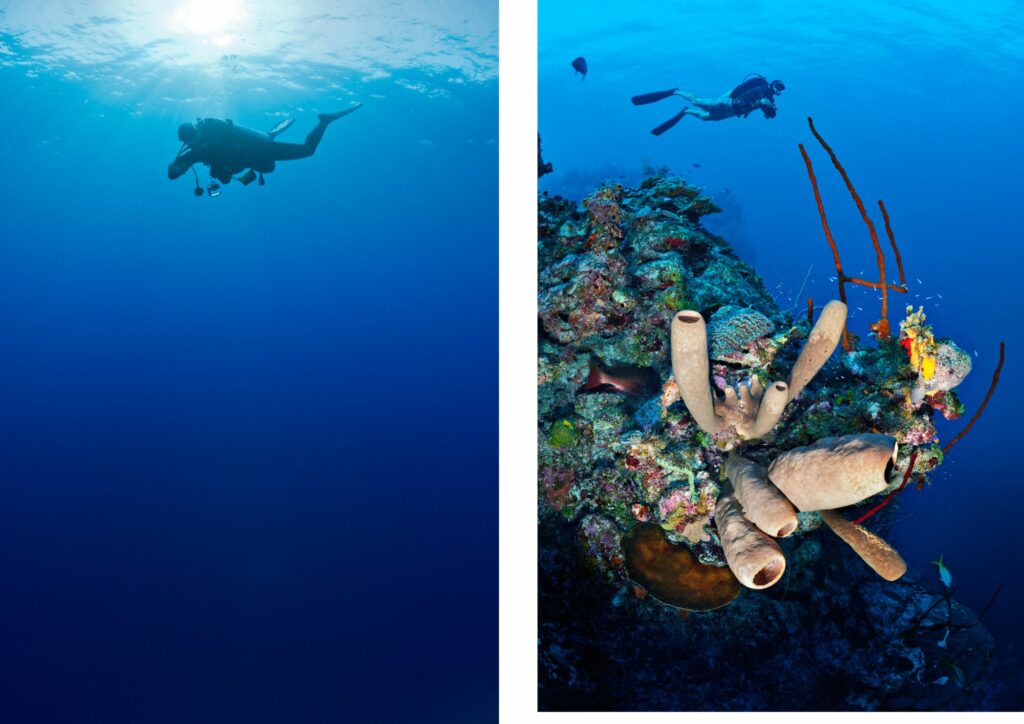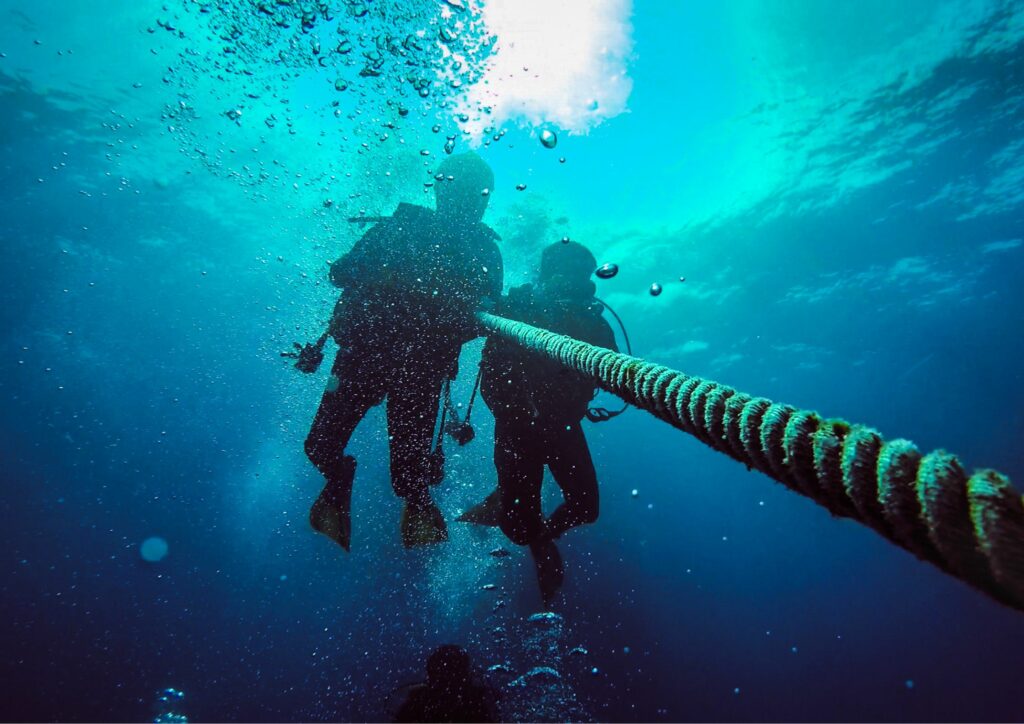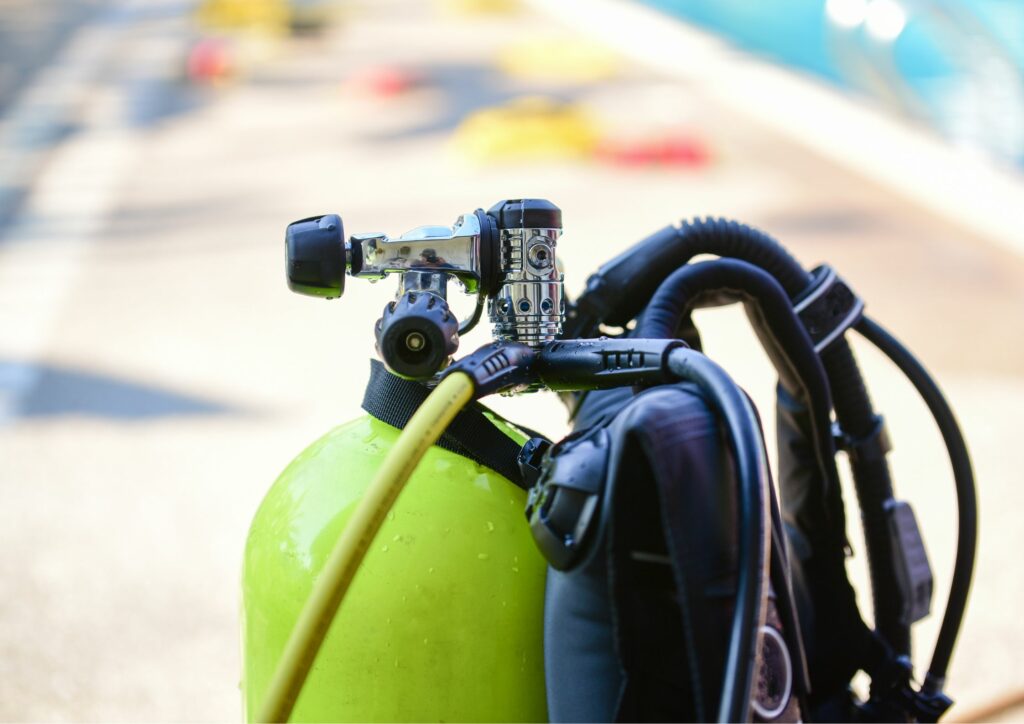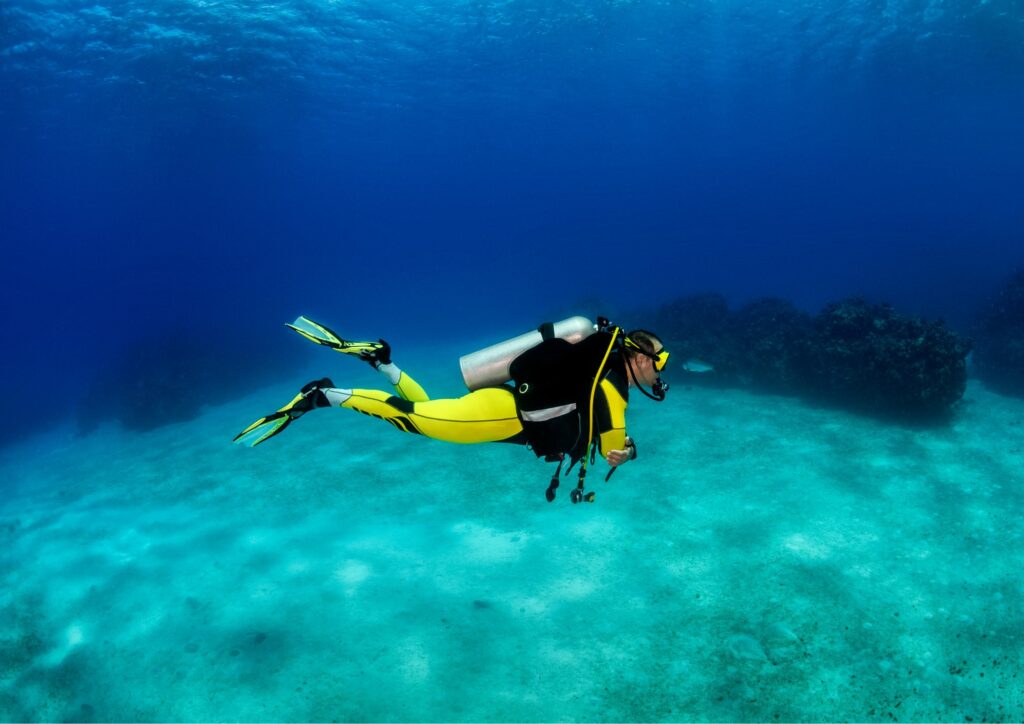This blog discusses vital dive safety guidelines, ocean safety precautions, diving emergency procedures, scuba diving safety rules, and water safety tips to increase your understanding and fortify your preparedness. As thrilling as diving into the grandeur of the ocean can be, it presents a unique set of challenges. Being prepared and equipped with essential survival skills is a must for every sea adventurer.
Comprehending Dive Safety Guidelines: Be Informed
Every dive, regardless of your experience level, begins with a comprehensive understanding of dive safety guidelines. This is not just about knowing them; it involves internalizing them and making them second nature. Considerations like hazard awareness, gear checks, buddy systems, and ascent/descent procedures form the backbone of diving safety. These go beyond mere knowledge – they represent a mindset, a constant mode of thinking and planning for safety. Even seasoned divers, despite their wealth of experience and expertise, consistently refresh themselves on these essential diving principles and safety measures. They recognize the value of regular review in enhancing their own security, as well as promoting safer diving practices within the larger diving community.
Upholding Ocean Safety Precautions: Be Aware

Safety above water is as paramount as it is beneath the surface. Divers need to remain cognizant of potential dangers like tsunami warnings, rip tides, and hazardous marine life. These threats illustrate the reality of the ocean’s unpredictability and inherent power, which should never be underestimated. A successful diver is always aware – not fearful, but respectful – of the oceanic conditions and potential risks they may encounter during a dive.
It is important to conduct timely research about the current state of the ocean such as water temperature, wave height, and tide tables before delving into its depths. This forms part of a wider strategy of being aware and showning respect to Mother Nature, very crucial to your safety and survival at sea.
Mastering Diving Emergency Procedures: Be Prepared

As with any adventurous activity, there are inherent risks involved which can lead to emergencies underwater. Common scenarios include equipment failure, sudden illness, or separation from your group. It is essential to be well versed in diving emergency procedures to ensure you can respond effectively to such situations. Regularly practicing rescue skills, emergency ascents, and the use of alternative air sources can drastically bolster your confidence, increase your safety, and reduce potential risks. Your ability to calmly and promptly react in these situations could be crucial, potentially life-saving. By mastering emergency procedures, you don’t just prepare, you empower yourself for any eventuality in or around the water in your diving experience.
Understanding Scuba Diving Safety Rules: Be Responsible
The rules governing scuba diving are in place for good reason, and their observance is of paramount importance. You must understand the intricacies of your dive plan, ensure your equipment is in perfect working condition, maintain neutral buoyancy, ascend slowly and never hold your breath underwater. These rules do not simply reflect best practices; they help ensure your safety and that of others around you. Moreover, their compliance serves as a demonstration of your responsibility – towards oneself, one’s dive buddy, diverse marine life, and the marine environment as a whole. Understanding and upholding these safety rules represents an important stride in demonstrating and advocating responsible diving.
Implementing Water Safety Tips: Be Safe in Dive Safety

Overall water safety should always be at the forefront of a diver’s mind. This includes sticking to swimming within your comfort zone, preferring to join an organized and experienced diving group, and ensuring proper hydration and nutrition. The thrill of diving can often sweep divers into the excitement and fun, which can make them overlook their well-being. These factors may seem mundane, but neglecting them can lead to serious consequences. Above all, remember that maintaining your health, safety, and well-being off and under the water, forms an integral part of your diving routine and should always be your topmost priority.
Riding The Waves Of Safety: A Sea Adventurer’s Survival Guide in Bali
Embarking on a Bali diving adventure promises an exhilarating experience, but ensuring safety is paramount for every sea adventurer. Bali’s diverse dive sites, from the gentle reefs of Amed to the exhilarating currents of Nusa Penida, require both preparation and caution. Before plunging into the azure depths, familiarize yourself with local marine conditions and heed the advice of experienced dive instructors.
Equip yourself with the right gear, perform thorough checks, and never dive alone. Understanding and respecting the aquatic environment, including its potential hazards such as strong currents or marine wildlife, is crucial. Adhering to these safety protocols not only enhances your diving experience but also ensures that each plunge into Bali’s underwater paradise is both thrilling and secure. By riding the waves of safety, adventurers can fully savor the wonders of Bali diving, creating unforgettable memories while safeguarding their well-being.

Wow, I’m blown away by the level of detail in this post! As a dive enthusiast myself, I can attest to the importance of prioritizing safety when exploring the underwater world. The tips and guidelines provided are super helpful – thanks for sharing!
Thank you so much, Elaine! We’re thrilled to hear that our post resonated with you and your passion for diving. At Gill Divers, we believe that safety should always be the top priority when exploring the underwater world, which is why we’re committed to providing our divers with comprehensive guidelines and expert advice. If you have any questions or concerns about dive safety, please don’t hesitate to reach out to us at Tel: +65 6734 9373, Email: [email protected]. We’re always here to help. Thanks again for your kind words!
I’m so impressed by the level of expertise and knowledge shared in this post! As a beginner diver, I found it super informative and reassuring to know that there are people out there who care about safety as much as I do. Thanks for sharing your wisdom!
Dear Rizal, Thank you for sharing your appreciation for our dive safety guidelines! We’re thrilled to hear that our post was informative and reassuring for you as a beginner diver. At Gill Divers, we believe that knowledge is key to having a safe and enjoyable diving experience. Our team of experts is dedicated to providing the best guidance and support to ensure that all divers can enjoy the thrill of exploring the underwater world while prioritizing their safety. If you have any further questions or concerns, please don’t hesitate to reach out. We’re always here to help. Tel: +65 6734 9373, Email: [email protected]
I completely agree with the emphasis on water safety! As a scuba diver, I’ve seen firsthand how quickly things can go awry if proper precautions aren’t taken. This post is a great reminder to always put safety first – kudos!
Thank you for sharing your experience and perspective, Aisha! We’re glad to hear that our emphasis on water safety resonates with you. At Gill Divers, we believe that safety should always be the top priority in diving, and we’re committed to helping our divers adopt attitudes of better respect and appreciation of the ocean and its life. If you have any questions or concerns about our dive safety guidelines, please don’t hesitate to reach out to us at +65 6734 9373 or [email protected]. We’re always here to help.